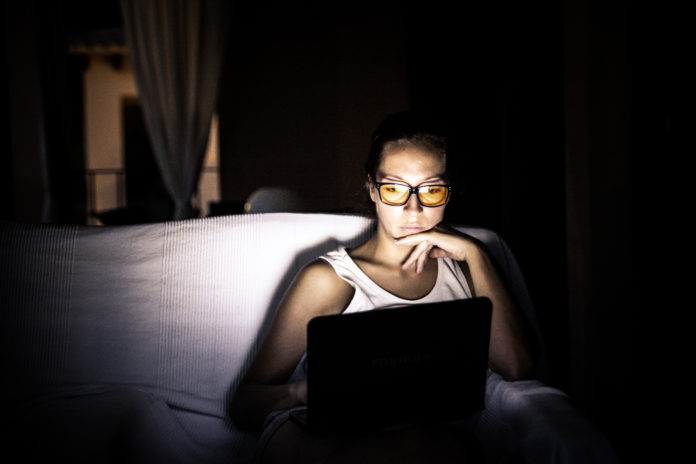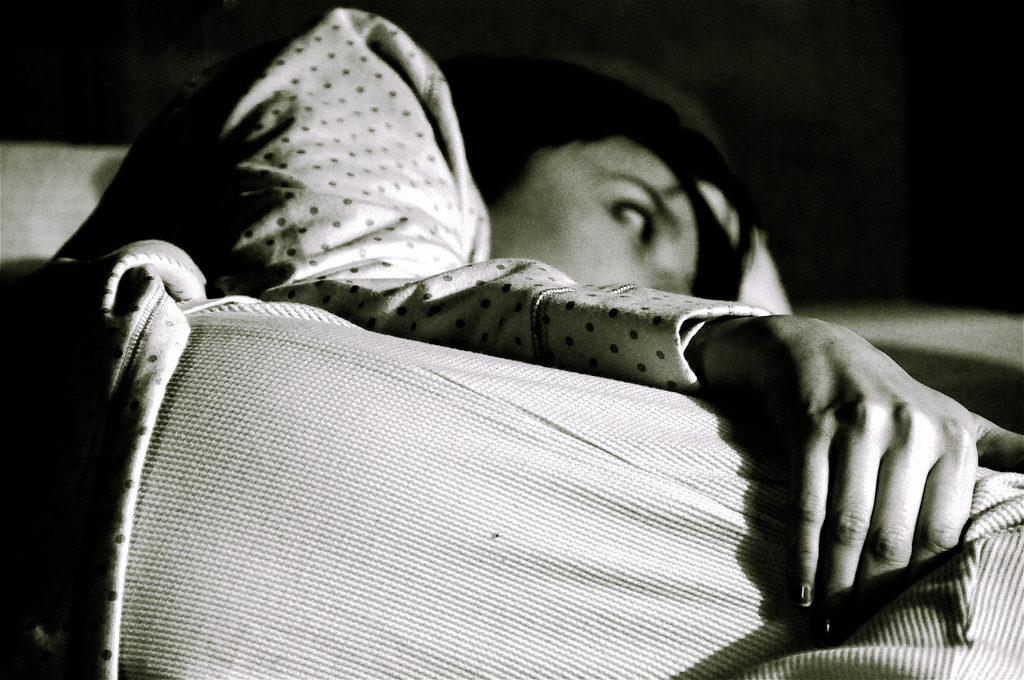
If you have trouble sleeping at night, a little tinted glass could come to your rescue.
Researchers from Columbia University Medical Center have found that using amber-tinted glasses to selectively block blue light from smartphones and other devices in the hours before bedtime could lead to improved sleep in individuals with insomnia.

Smartphones, tablets and other light-emitting devices are lit by LEDs, which have a peak wavelength in the blue portion of the spectrum. The researchers tested a method to reduce the adverse effects of evening ambient light exposure, while still allowing use of blue light-emitting devices. Blue light at night suppresses melatonin and increases alertness; the use of amber-tinted lenses that block blue light mitigates these effects, researchers said. Melatonin is a hormone secreted by the pineal gland that has an effect on the sleep and wake cycles of the body, what is known as the diurnal rhythm.
The researchers found that participants got around 30 minutes extra sleep when they wore the amber lenses compared to the clear lenses
The Columbia team, led by assistant professor Ari Shechter, reasoned that selectively blocking blue light in the hours before bedtime would lead to improved sleep in individuals with insomnia. To test their theory, the researchers recruited 14 individuals with an insomnia diagnosis to take part in a small study. For seven consecutive nights, participants wore wrap- around frames with amber-tinted lenses that blocked blue light or with clear placebo lenses for two hours before bedtime. Four weeks later, participants repeated the protocol with the other set of glasses.
The researchers found that participants got around 30 minutes extra sleep when they wore the amber lenses compared to the clear lenses. In self-reported sleep surveys, participants also reported greater duration, quality, and soundness of sleep, and an overall reduction in insomnia severity. These findings, published in the journal Sleep Medicine, are consistent with prior studies showing a benefit of blue- light-blocking lenses in improving sleep, but should be replicated in larger controlled studies, Shechter said.
“Now more than ever we are exposing ourselves to high amounts of blue light before bedtime, which may contribute to or exacerbate sleep problems. Amber lenses are affordable and they can easily be combined with other established cognitive and behavioural techniques for insomnia management,” Shechter said. Many smartphones screens can now be adjusted to emit amber instead of blue light, and Shechter said these settings should help to improve sleep.









